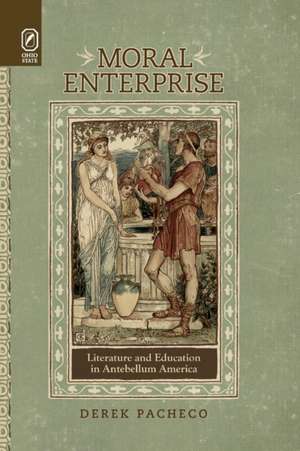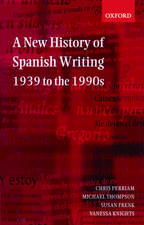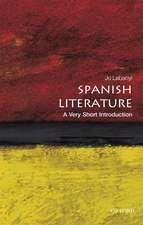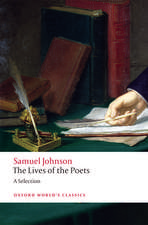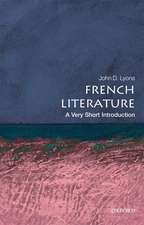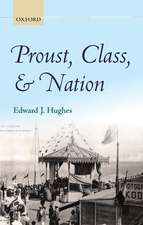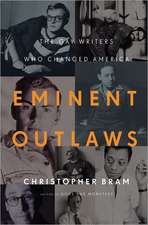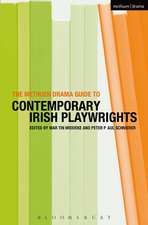Moral Enterprise: Literature and Education in Antebellum America
Autor Derek Pachecoen Limba Engleză Paperback – 9 iul 2017
Moral Enterprise: Literature and Education in Antebellum America, by Derek Pacheco,investigates an important moment in the history of professional authorship. Pacheco uses New England “literary reformers” Horace Mann, Nathaniel Hawthorne, Elizabeth Peabody, and Margaret Fuller to argue that writers came to see in educational reform, and the publication venues emerging in connection with it, a means to encourage popular authorship while validating literary work as a profession. Although today’s schools are staffed by systematically trained and institutionally sanctioned teachers, in the unregulated, decentralized world of antebellum America, literary men and women sought the financial stability of teaching while claiming it as moral grounds for the pursuit of greater literary fame.
Examining the ethically redemptive and potentially lucrative definition of antebellum author as educator, this book traces the way these literary reformers aimed not merely at social reform through literature but also at the reform of literature itself by employing a wide array of practices—authoring, editing, publishing, and distributing printed texts—brought together under the aegis of modern, democratic education. Moral Enterprise identifies such endeavors by their dual valence as bold, reformist undertakings and economic ventures, exploring literary texts as educational commodities that might act as entry points into, and ways to tame, what Mann characterized as the “Alexandrian library” of American print culture.
Preț: 264.17 lei
Nou
Puncte Express: 396
Preț estimativ în valută:
50.55€ • 54.90$ • 42.47£
50.55€ • 54.90$ • 42.47£
Carte tipărită la comandă
Livrare economică 22 aprilie-06 mai
Preluare comenzi: 021 569.72.76
Specificații
ISBN-13: 9780814254493
ISBN-10: 0814254497
Dimensiuni: 152 x 229 x 15 mm
Greutate: 0.32 kg
Ediția:1
Editura: Ohio State University Press
Colecția Ohio State University Press
ISBN-10: 0814254497
Dimensiuni: 152 x 229 x 15 mm
Greutate: 0.32 kg
Ediția:1
Editura: Ohio State University Press
Colecția Ohio State University Press
Recenzii
“Derek Pacheco’s scholarship is meticulous, and his writing is clear, concise, and jargon-free. Moral Enterprise fills a previously empty niche and invites further scholarship on the connections between pedagogy and Transcendentalism.” —Angela Sorby, Marquette University
“In Moral Enterprise, Derek Pacheco examines the development of literary culture in the antebellum United States from the vantage point of educational reform. Juxtaposing prominent authors in the literary canon—for example, Fuller and Hawthorne—with other, nonliterary figures, this book offers a series of case studies that, refreshingly, make the book more than the sum of its parts.” —Thomas Augst, New York University
Notă biografică
Derek Pacheco is assistant professor of English and American studies at Purdue University.
Cuprins
Introduction Education and the “Alexandrian Library”
Chapter 1 Bibliographic Nationalism: Marketing America in Horace Mann’s School Library
Schools, Authors, and Economics
“Respectable” Publishing
Bibliographic Nationalism
Conclusion: “Grandest Moral Enterprise”
Chapter 2 “Disorders of the Circulating Medium”: Hawthorne’s Early Children’s Literature
“Benumbed Fingers”
“Disorders of the Circulating Medium”
Grandfather’s Love
Loving “Sam” Johnson
Conclusion: “Very Capital Reading”
Chapter 3 “Contact with the World”: Elizabeth Peabody’s West Street Bookshop
Engendering Controversy
“No Worthless Books”
Transcending West Street
Conclusion: “Transcendental Exchange”
Chapter 4 “Conversation of a Better Order”: Margaret Fuller from the Classroom to The Dial
Conversations in Providence
Boston and the “Animating Influences of Discord”
Fuller, Emerson, and The Dial
Conclusion: “Old Gentlemanly Pace”
Coda “The Sun is but a Morning Star”
Chapter 1 Bibliographic Nationalism: Marketing America in Horace Mann’s School Library
Schools, Authors, and Economics
“Respectable” Publishing
Bibliographic Nationalism
Conclusion: “Grandest Moral Enterprise”
Chapter 2 “Disorders of the Circulating Medium”: Hawthorne’s Early Children’s Literature
“Benumbed Fingers”
“Disorders of the Circulating Medium”
Grandfather’s Love
Loving “Sam” Johnson
Conclusion: “Very Capital Reading”
Chapter 3 “Contact with the World”: Elizabeth Peabody’s West Street Bookshop
Engendering Controversy
“No Worthless Books”
Transcending West Street
Conclusion: “Transcendental Exchange”
Chapter 4 “Conversation of a Better Order”: Margaret Fuller from the Classroom to The Dial
Conversations in Providence
Boston and the “Animating Influences of Discord”
Fuller, Emerson, and The Dial
Conclusion: “Old Gentlemanly Pace”
Coda “The Sun is but a Morning Star”
Descriere
Uses New England “literary reformers” Horace Mann, Nathaniel Hawthorne, Elizabeth Peabody, and Margaret Fuller to argue that writers came to see in educational reform, and the publication venues emerging in connection with it, a means to encourage popular authorship while validating literary work as a profession.
